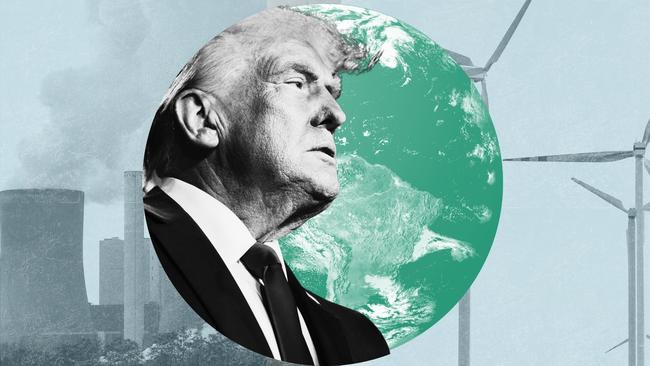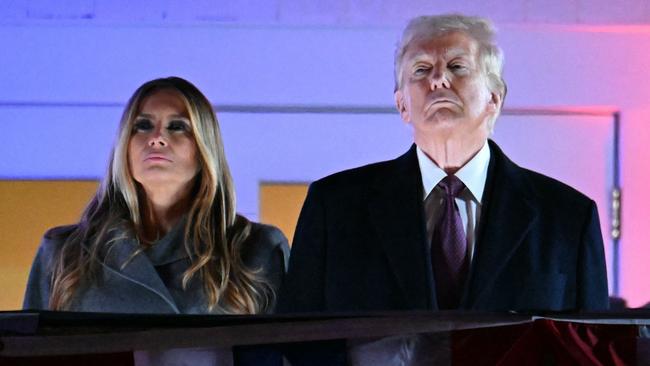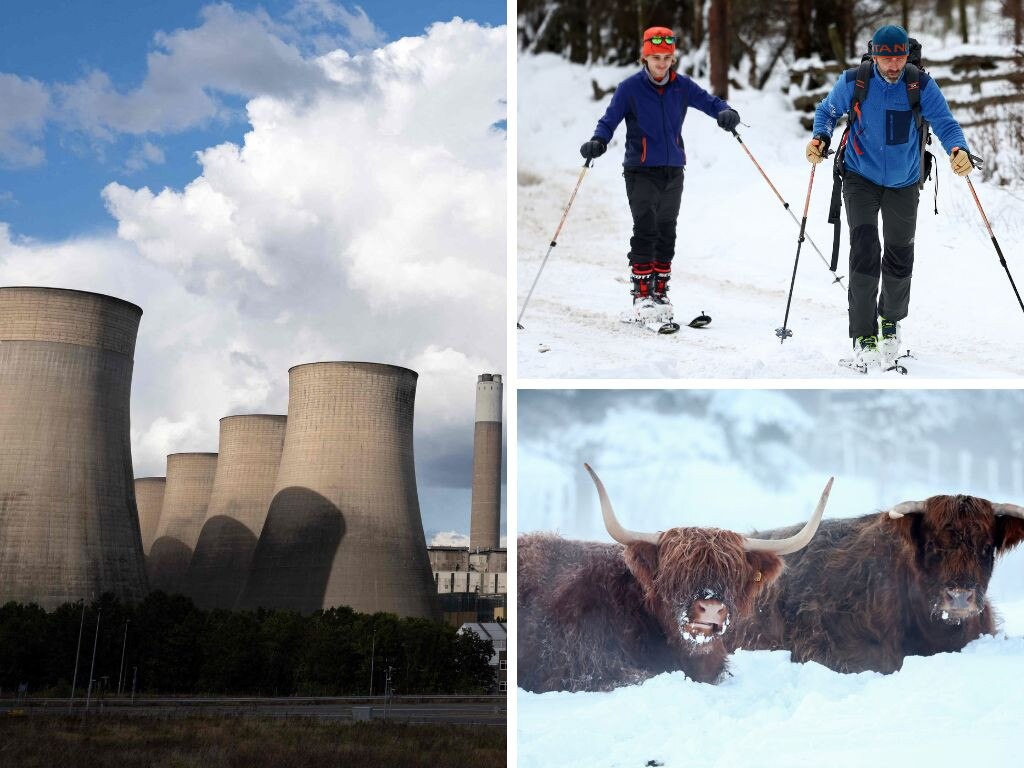Trump the catalyst for net-zero retreat

For Americans seeking signs of a return to the relative sanity of Ronald Reagan’s presidency, it was a welcome omen.
On the day of Reagan’s second inauguration in 1985, long before global warming became a thing, the temperature in Washington hovered around minus 14C. Monday’s forecast maximum is minus 6C.
It would be premature to proclaim that Donald Trump has stopped global warming any more than he has yet brought peace to the Middle East.
However, Trump’s election has noticeably changed the climate of the energy policy debate, and the consequences will be felt worldwide.
Corporate America is preparing for a bonfire of climate regulations within days of Trump’s resumption of office. Trump has pledged to cut energy costs by 50 per cent in his first year by easing fugitive emissions restrictions on oil and gas, opening federal land for fracking, and scrapping the tough new standards for coal-fired power plants and newly built gas generation introduced in 2024 by the Biden administration.
CNN presenters describe this disparagingly as the “Drill baby, drill!” approach. Less partisan observers would interpret it as a welcome return to the supply-side economics that underpinned Reagan-era prosperity. The secret to reducing the cost of energy is simply to produce more of it. As in Australia, the moral debate about climate change in the US is a proxy war for something far less high-minded.

Americans are divided not by ideology but by investment portfolios. Stocks in the oil, gas and nuclear sectors have risen ahead of Trump’s inauguration while the value of investments in renewable energy has fallen.
Corporate America has been quick to adapt to the changing political environment. Net-zero 2050 has become passe.
Six of the largest banks in the US – Citigroup, Bank of America, Goldman Sachs, JPMorgan Chase, Morgan Stanley and Wells Fargo – read the wind and announced they would be withdrawing from the UN-sponsored Net-Zero Banking Alliance.
And BlackRock announced that it was pulling out of a similar UN-sponsored climate initiative, the Net Zero Asset Managers initiative.
The collapse of the green energy finance cartel will affect the flow of global capital. The difficulties of funding renewable energy projects will increase while banks will become more sympathetic to other technology, particularly nuclear.
Trump told a press conference at Mar-a-Lago early this month: “We’re going to try and have a policy where no windmills are being built.” Wind turbines “turn to garbage” after a time and “litter” the country, he said, adding that the death of whales from offshore wind development was a proven fact. Wind energy was, he continued, “the most expensive energy ever; many, many times more expensive than clean natural gas”.
It was the death knell for the offshore wind sector and for onshore projects on federal land.
While the construction of turbines on private land is beyond the reach of a presidential decree, their financial viability will be weakened by the suspension of tax credits.
Trump has promised to rescind unspent money allocated under Biden’s Green New Deal, aka the Inflation Reduction Act, or the Green New Scam as the president-elect called it recently.
In his first term, Trump took several months to announce the US withdrawal from the Paris Agreement as he dealt with resistance from his advisers and some cabinet members. This time, the withdrawal could be decreed as soon as day one.
It is a measure in part of Trump’s increased stature. It also gauges how far the global energy and climate debate has shifted in the intervening four years. The disruption of gas supplies caused by Russia’s invasion of Ukraine and the realisation that reducing carbon emissions is considerably harder than setting targets has generated buyers’ remorse about the net zero by 2050 agreement, made in the heady atmosphere of an Intergovernmental Panel on Climate Change gathering in 2015 in one of the more pleasant capitals.

Net-zero-by-2050 true believers no doubt will play down the importance of the US withdrawal, noting it will be almost alone in the developed world.
They miss the point. The US withdrawal will mean the world’s top four carbon emitters – China, the US, India and Russia – responsible for 60 per cent of emissions, will not be bound by the agreement.
Sooner or later, countries such as Australia will get around to discussing why we should bother. Indeed, some prominent members of the Coalition, particularly in the Nationals, are already asking that question.
In Europe, backsliders are kept in check by the EU bureaucratic industrial complex in Brussels that, increasingly, makes the big decisions on economic, fiscal and immigration policy. Yet tensions are increasing between renewables-only mendicants, notably Germany, and the European nations that shoulder the burden of keeping the European grid alive when Germany’s wind turbines go into a funk.
In December 2024, Sweden’s Deputy Prime Minister and Energy Minister  Ebba Busch signalled her loss of patience with the Germans, pointing out the defects of the target-driven approach adopted by the European Commission and the IPCC.
“Is it more important to have a specific target for renewables where you can tamper with statistics, for example, by closing down nuclear power plants, or is the main target fossil-free and clean energy production?” she asked journalists during a break in a meeting of energy ministers in Brussels. “No willpower in the world can override the basic rules of physics, not even Dr Robert Habeck.”
Habeck is the German Vice-Chancellor and Economic Affairs and Climate Action Minister.
Sooner or later, Australia will have to confront the new realities of the climate debate and recognise that a transition to a net-zero economy cannot conceivably be achieved in the next 25 years, and probably not in the next 50.
We must recognise that a target-driven policy, inevitably constrained by economic and engineering reality, is empowering bureaucrats who are crippling our economy, eroding our competitive advantage, undermining fiscal stability and slashing future prosperity.
Countless billions of dollars in capital have been assigned to subprime schemes of dubious worth rather than being invested in more productive pursuits.
Just as Reagan’s presidency set an example for Western nations to break away from the destructive economic orthodoxies of his day, Trump may be the catalyst for the global restoration of energy common sense.





A bone-chilling burst of polar air swept south from Canada into the heart of the US across the weekend, prompting the presidential inauguration ceremony on Monday (Tuesday AEDT) to be moved indoors for the first time in 40 years.